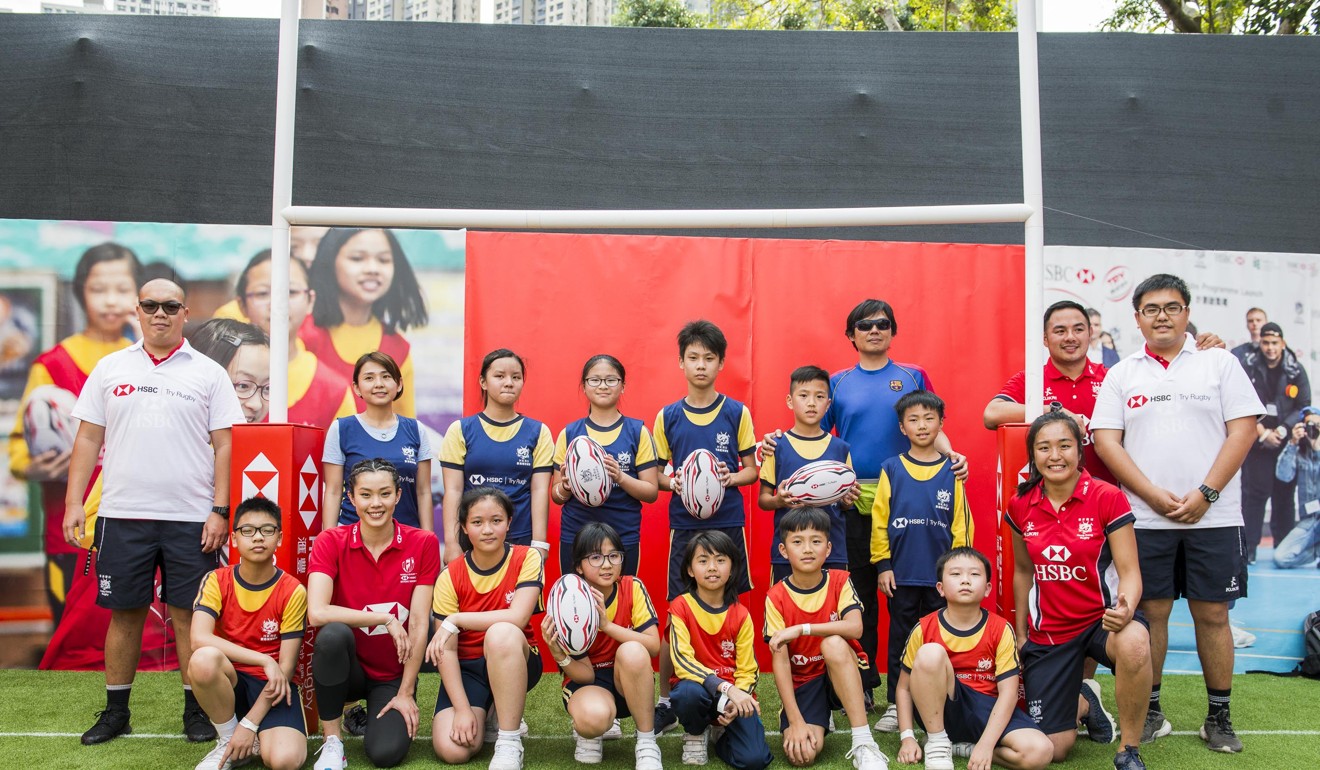
‘It’s a sign of weakness’: Ben Ryan questions coaches sending second-rate teams to Hong Kong Sevens
Former Fiji coach applauds incumbent Gareth Baber for bringing all his big guns and says they will be holding the trophy again on Sunday
Former Fiji and England sevens coach Ben Ryan called it a “sign of weakness” and a “lack of understanding” that some coaches have opted to bring weakened teams to this year’s Cathay Pacific/HSBC Hong Kong Sevens.
South Africa, England, New Zealand and Australia landed in Hong Kong with second-string members as their best players prepare for the following week’s Commonwealth Games, which they deem a higher priority.
“It’s really disappointing that some teams have taken that route, to come into the most celebrated Sevens tournament in the world under strength,” said Ryan, in town as a HSBC global ambassador for the Sevens, and supporting Community Day aimed at engaging young locals with rugby.
“We’re used to playing two tournaments in a row, but for some reason the teams think it’s too hard for them to do this time.

“I remember playing in Hong Kong having played in Adelaide the week before … everyone makes that journey of recalibrating and playing. I think it’s a real shame and the wrong decision by the coaches.”
Ryan, who famously led Fiji to two World Series and an Olympic Games gold medal, questioned why coaches are now cherry-picking tournaments, having already experienced clustered schedules for years.
“It’s a bit of a sign of weakness to the other teams because you’re effectively saying you’re not good enough in week two – that you can’t back up two tournaments in a row – so you had to prioritise,” said Ryan, who is now contracted to the French Rugby Federation as a performance consultant.
“But that’s our sport. For them to suddenly change the way they do things lacks a bit of perspective and understanding.
“Neither of these dates have suddenly crept up on the coaches. They’ve known about it and should therefore plan for it,” he said. “These teams have decided to protect their players for the Games, but you’ll always get injuries coming into tournaments; two guys from the New Zealand team going to the Commonwealth Games have had to be replaced.”

Current Fiji coach Gareth Baber has brought a full-strength team, a move Ryan applauded.
“I would have just planned it well; put my strongest side in Hong Kong, and if we got injuries, we have a plan B,” he said. “You go in hard and do exactly what Fiji are doing – ‘right we’re going to try win both of these’ – you’ve got to doff your cap to them.”
And if forced to make priorities these coming weeks, the Commonwealth Games would certainly not be Ryan’s first pick.
“For me, [it’s] no longer the standard it used to be. The commonwealth doesn’t exist any more – I’m speaking as an Englishman – and that whole competition is only going to reduce in the years to come. It’s a mistake,” he said.
On the up side, Hong Kong fans may be treated to some unexpected results this weekend as the underdogs continue to sniff weakness within some top teams.
“There are going to be a tonne of upsets because you’re going to see the big teams getting turned over by the smaller ones this weekend – it’s going to be exciting in that respect,” said Ryan.
“There’s a chance someone like South Korea could turn over England. Australia have got their second team and they’re not going to beat a full-strength Kenya or Canada.”
The drop in top-tier sevens quality will bode well for Ryan’s former team, Fiji, who have won the Hong Kong edition for three years in a row and look the part this time around.
“It’s hard not to see Fiji raising the trophy for the fourth consecutive time come Sunday night,” he said, adding that they have five “mega stars” in the team who also featured in the gold medal-winning Olympic side.

